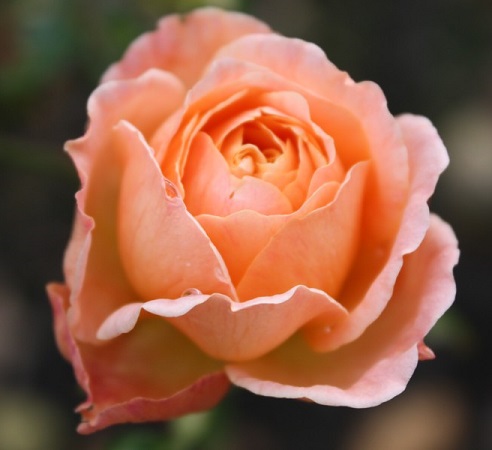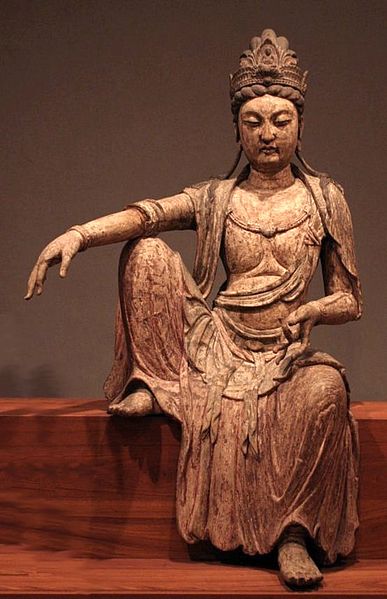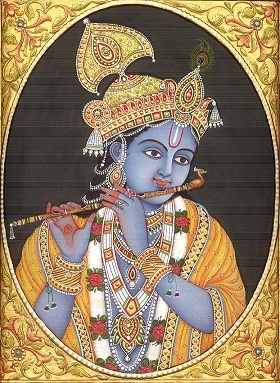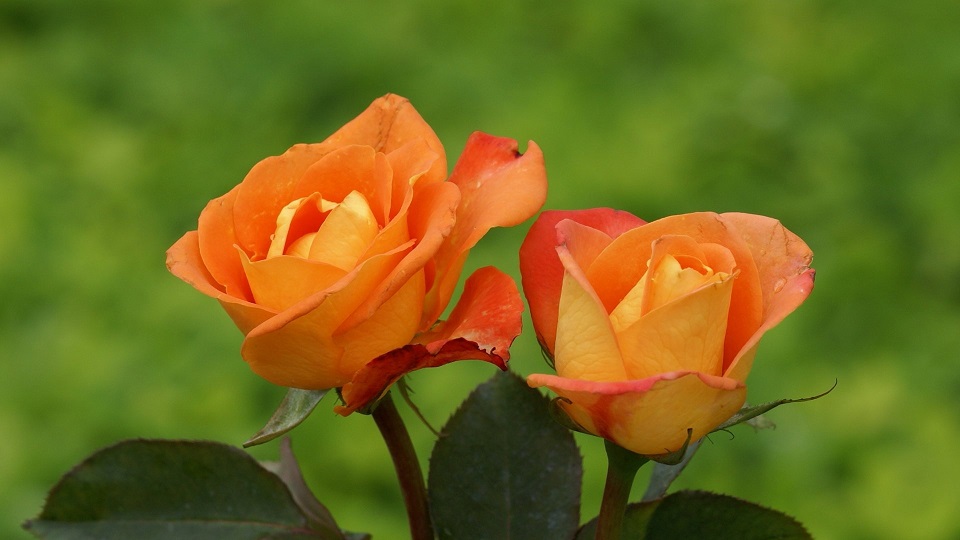

Vimshottari Dasha - Rashi - Gochara - Bhava - Graha - Ratna - Nakshatra - Amsha - Karaka - Varga - Bala
- Comforting-seeking Chandra reaches maturity = age 24
- Traditional Jyotishavidya Sacred Jewels Ratna for Chandra
- lagnesha for Karkata rashi
- BPHS Vimshottari Mahadasha of Chandra
- BP Lama modern commentary Chandra Mahadasha
Union alliance lifepartners for Chandra-9
see also 9th-from-Chandra
- [Chandra in classroom-1]
- [Chandra in classroom-2]
- [Chandra in classroom-3]
- [Chandra in classroom-4] [svabhava] [dikbala]
- [Chandra in classroom-5]
- [Chandra in classroom-6]
- [Chandra in classroom-7]
- [Chandra in classroom-8]
- [Chandra in classroom-9]
- [Chandra in classroom-10]
- [Chandra in classroom-11]
- [Chandra in classroom-12]
- [Chandra-Mesha]
- [Chandra-Urisha] [uchcha] [svakshetra] [mūlatrikoṇa if within 4-30 deg]
- [Chandra-Mithuna]
- [Chandra-Karkata]
- [Chandra-Simha]
- [Chandra-Kanya]
- [Chandra-Tula]
- [Chandra-Vṛścika] [nīcha]
- [Chandra-Dhanus]
- [Chandra-Makara-Draco]
- [Chandra-Kumbha]
- [Chandra-Meena]
- [Somana-yuti-Kuja]
- [Somana-yuti-Budha]
- [Somana-yuti-Guru]
- [Somana yuti Shukra]
- [Somana-yuti-Shani]
- [Somana-yuti-Surya]
- [Somana-yuti-Rahu]
- [Somana-yuti-Ketu]
- [2nd-from-Chandra]
- [3rd-from-Chandra]
- [4th-from-Chandra]
- [5th-from-Chandra]
- [6th-from-Chandra]
- [7th-from-Chandra]
- [8th-from-Chandra]
- [9th-from-Chandra]
- [10th-from-Chandra]
- [11th-from-Chandra]
- [12th-from-Chandra]


AUM som somaya namah
चन्द्र candra = brightener, shiner
Professor Chandra
सोम so-ma = moon, soma-sacrifice
सुम su-ma = moon, atmosphere
ठ tha = disk of moon
शशिन् shashin = moon, containing a hare
ऋक्षराज् ṛkṣa-rāj = lord of the constellations
आत्ममय ātma-maya = my own self-essence
जलमित्र jala-mitra = friend of waters
निशाकर niśā-kara = night-creator
resides in
धर्म dharma = right, naature, character
पितृ pitṛ pittrü = father, forefather
चित्त citta chitta = thought, intelligence
गुरु guru = growth
आचार्य ācārya = teacher
ज्ञानचन्द्र jńāna chandra = The Learned Moon
वेदचन्द्र veda chandra = Wise Moon
Nanna - Anna - Di-ana - Inanna
Sin - Sinai - Selene - Serena - Luna
Aah - Iah
Mens - Mind
Moon = Monday
occupies
the ninth house
iter
comforted by catechism
emotional safety in principled beliefs

Kuan-yan bodhisattva, Northern Sung dynasty
China, c. 1025, wood
Honolulu Academy of Arts
https://en.wikipedia.org/wiki/File:Kuan-yan_bodhisattva,_Northern_Sung_dynasty
" Man is what he thinks all day long."
~~ Ralph Waldo Emerson
" I've learned that people will forget what you said,
people will forget what you did,
but people will never forget
how you made them feel."
~~ Maya Angelou

EXAMPLE
[Chandra-Mesha] comforted by forward pursuit * settled into warrior rhythms * needs vitality
[retreating-contemplative vyaya-pati for Simha indriya-lagna]
check Mangala and Kuja-drishti to find the engine behind Chandra's kinetic, competitive, forward-pushing sensibilities
[folk-reputation 10th-from-Chandra = hierarchical Makara - Draco 6 lawfully regulated medicine, military, service-ministry]
competitive, pioneering, forward-moving emotional sensitivity expressed through temple preaching, university teaching, and global humanism.
-
POTUS-02 Thoughts on Government 1735-1826 John Adams [patriotic-customary Aśvini-4]
-
POTUS-29 Teapot Dome 1865-1923 Warren G. Harding [dominating-innovative Aśvini-1]
***
-
POTUS-pair-30 Deaf Schools 1878-1957 Grace G. Coolidge [humanistic-ideological Kṛttikā-1]
-
Sans attendre 1968- chanteuse compositrice Celine Dion [team-working, publicizing Aśvini-3] [Somana-yuti-Kuja]
[Chandra-Urisha] comforted by precious values * settled into rhythmic gathering * needs luxury
[uchcha]
check Shukra and Shukra-drishti to determine the form of Chandra's pleasing, enriching, musical sensibilities
[mūlatrikoṇa if within 4-30 deg]
[friendly-gainful vriddhi-pati for Kanya indriya-lagna]
[folk-reputation 10th-from-Chandra = systematic, community-connected, profitable service-ministry, medication, logical argument Kumbha-6]
[Dhanayoga ruler of 11 occupies 11th-from-11] [profits from mother's beliefs, and from rhythmic understanding]
treasury-hoarding, history-remembering, sensual-pleasuring emotional sensitivity expressed through temple preaching, university teaching, and global humanism
-
Waste Land 1888-1965 publisher T.S. Eliot [ritualizing-wavelike Rohiṇī-4] [mūlatrikoṇa]
[Chandra-Mithuna] comforted by messaging * settled into rhythmic communications * needs mentality
[dutiful-hierarchical karmesha for Tulā-born]
check Budha and Budha-drishti to determine the form of Chandra's conversational, coupling, commercial sensibilities
[folk-reputation 10th-from-Chandra = visionary assistance, conceptually argued, interior guided aide, privately reflective service, imaginatively litigious Meena-6]
[social-moral conscience] [ethical philosophy of government]
announcing, reporting, messaging emotional sensitivity expressed through temple preaching, university teaching, writing-publishing of sermons, global humanism
-
Walden 1817-1862 abolition Henry David Thoreau + [philosophical-guiding Arudra-1] [Surya-yuti-Budha]
[Chandra-Karkata] comfortable with doctrine * familiar with philosophy * needs understanding comforted by maternal soothing * settled into tidal rhythms * needs to protect
[svakshetra]
[philosophical-doctrinal dharmesha for Kita-born]
[folk-reputation 10th-from-Chandra = service ministry, aid to suffering, warlike champion Mesha-6]
[devout Mother provides principled moral guidance] [intuitive ancestral philosophical understanding] [customary ethno-cultural patronage] [defense of localism within a global perspective]
[sensitive to rhythms of patriarchal priesthood] [needs undulating habitual worldview] [comfortable with soothing rituals of ancient religion] [familiar face to the needy believers]
[feels inspired by breadth of maternal wisdom] [ideology of national security] [mother's father may be politician, dramatist, or creative artist] [mother's mother seeks private contemplation]
-
POTUS-11 Manifest Destiny 1795-1849 James Knox Polk [political-dramatizing Pushya-1] [Chandra-yuti-Rahu]
-
Satyagraha 1869-1948 Mahatma Mohandas Gandhi [visionary-charitable Aśleṣa-4] [Atmakaraka] [Chandra-yuti-Rahu]
-
Calif-Gov 1938- Moonbeam Jerry Brown [routine-customary Punarvasu-4] [vargottamsha]
-
Top Gun 1962- cinema Tom Cruise [negotiating-diplomatic Pushya-3] + [Shukra-yuti-Rahu]
***
-
Ms. Magazine 1934- women's rights Gloria Steinem [dramatizing-political Pushya-1] [Somana-yuti-Ketu]
[Chandra-Simha] comforted by creative display * settled into dramatic rhythms * needs attention
[mysterious-initiatory randhresha for Dhanus indriya-lagna]
check Surya and Surya-drishti to see the source of Soma's regal, radiating, displaying sensibilities
[folk reputation 10th-from-Chandra = aid to impoverished, financial mistreatment, medicine from fields and forests, luxurious military, enrichment ministries, sensual servitude, oral complaint, pleasure toxicity, historical misvaluation Urisha-6]
[comfortable with celebration of mysterious doctrine] [intellectually familiar with transformative philosophy] [needs display of initiatory understanding] [soothed by creative performance of priestly ritual]
royal, celebrity, self-reflexive emotional sensitivity expressed through temple preaching, university teaching, and global humanism
-
POTUS-10 Annex Texas 1790-1862 John Tyler [ideological Uttaraphalgunī- 1] [Atmakaraka] [Somana-yuti-Guru]
-
India-PM 1944-1991 Rajivaratna Gandhi [bargaining-adjusting Pūrvaphalgunī-3] + [Guru-yuti-Budha] + [Surya-yuti-Shukra]
***
-
Out on a Limb 1934- drama-esoterica Shirley MacLaine [analytical-helping Pūrvaphalgunī-2]
[Chandra-Kanya] comforted by remedial aid * sensitive to logical argument * needs to help
[balancing-bargaining jaya-pati for Makara - Draco indriya-lagna]
check Budha and Budha-drishti to determine the form of Chandra's analytical, argumentative, logical sensibilities
[folk reputation 10th-from-Chandra = management miscommunication, instructional ministry, medical business, military signal mistakes, commercial litigation, gesturing complaint Mithuna-6]
complaining, conflicted emotional sensitivity expressed through temple preaching, university teaching, and global humanism
-
Secret Doctrine 1831-1891 Theosophy Helena Hahn Blavatsky [dramatizing-demonstrating Chitra-1] [Chandra-yuti-Shukra -nīcha]
-
Super Brain 1946- Dr.Deepak Chopra [systematic-profitable Uttaraphalgunī-3]
-
Harry Potter 1965- magical-fiction J.K. Rowling [regulatory-hierarchical Uttaraphalgunī-2] [Somana-yuti-Kuja]
[Chandra-Tula] comforted by negotiation of agreements * sensitive to balance * needs to trade
[inimical-medicating rogesha for Kumbha indriya-lagna]
check Shukra and Shukra-drishti to find the brokerage behind Chandra's balancing, harmonizing, diplomatic sensibilities
[folk-reputation 10th-from-Chandra = conflicted, adversarial, toxic, aggrieved, criminalized or villainized, in the caretaking, protective, parental style of Karkata-6]
bargaining, equity-seeking, diplomatic emotional sensitivity expressed through temple preaching, university teaching, and global humanisam
imbalanced mother-figures, mixing ethnic custom with religion
-
Genesis 1951- songwriter drummer Phil Collins [regulatory-hierarchical Arcturus-2] ???
[Chandra-Vṛścika] [nīcha]
[witty-creative vidya-pati for Meena indriya-lagna]
check Mangala and Kuja-drishti to find the engine behind Chandra's penetrating, transformative, rebirthing sensibilities
[folk reputation 10th-from-Chandra = dramatically dissatisfied, toxic display, exploitive romance, theatrically accusatory, addicted to entitlement, unfair politics, regal assistance Simha-6]
[comforted by an inner flow of deeply mysterious intelligence] [sensitive to hidden principles of trauma-healing] [needs domestic healing discovery] [entitled to feel caretaking emotions] [ethno parental wisdom on a global scale]
-
Photographer 1941-1998 vegetarian activist Linda Eastman McCartney [protective Viśākha-4]
-
Raag Khamaj 1920-2012 sitarist Ravi Shankar [artistic performance Anuradha-1]
-
49th Nizari Ismaili Imam 1936- Agha Khan-4 Karim al-Husseini [hierarchical-structured Jyeṣṭha -2] [nicha-Somana-yuti-Surya]
[Chandra-Dhanus] comforted by customary beliefs * settled into rhythmic received teachings * needs to feel wisely guided * settled into the rhythm of received teachings
[homebound-anchoring bandhesha for Mesha indriya-lagna]
check Guru and Guru-drishti for the scope of Chandra's optimistic, philosophical, preaching sensibilities
[folk reputation 10th-from-Chandra = logically argumentative, toxic medication, exploitive service, humbly accusatory, addicted to helping, unfair minstering, unbalanced assistance Kanya-6]
[generous patronage]
expressed through temple preaching, university teaching, and global humanisam
familiar face in realms of ideology and ecclesiastical doctrine
-
POTUS-21 Civil Service 1829-1886 Chester A. Arthur [bargaining-contractual Pūrvāṣāḍhā-3]
-
USA-Gov-FL 1953- offshore finance Jeb Bush [optimistic-doctrinal Uttarāṣāḍha-1] [vargottamsha]
[Chandra-Makara-Draco] comforted by hierarchy * sensitive to class-status * needs ritual ordering
[busy-communicative vikrama-pati for Urisha indriya-lagna]
check Shani and Shani-drishti to determine the form of Chandra's orderly, class-conscious sensibilities
[folk reputation 10th-from-Chandra = public duties in the style of Tulā-6 = harmonious medicine, diplomatic service ministry, negotiated aid, help with balance ]
orderly, dignified, regulatory emotional sensitivity expressed through temple preaching, university teaching, and global humanism
-
France-Emperor 1769-1821 Wars Napoleon Bonaparte [financial-historical Śrāvaṇa-2] [Shani-3 parivartamsha Chandra-9]
-
UK-PM Global Alliance 1953- Tony Blair [committee-communicating Śrāvaṇa-3] [Chandra-yuti-Rahu]
-
Moneyball 1963- drama-commerce Brad Pitt [profitable-networking Uttarāṣāḍha-3] + [Vaishva-Somana-yuti-Shukra-Vaishva] [Vaishva-Somana-yuti-Shani-Dhanistha]
[Chandra-Kumbha] comforted by friendship * sensitive to mass-participation gridworks * needs marketplace connection
[preserving-collecting dhanesha for Mithuna indriya-lagna]
check Shani and Shani-drishti to determine the form of Chandra's orderly, class-conscious sensibilities
[folk reputation 10th-from-Chandra = mysterious assistance, occult servitude, eruptive ailments, suddenly transformative ministries, invasive medicine, hidden disagreements Vṛścika-6]
[comforted by familiar doctrinal friendships] [culturally sensitive to beliefs about material goal achievement] [needs to feel the inspirational pulse in collective worship assemblies]
[habitual preacher-teacher about language, historical narratives, heritage values] [soothed by scientific theories] [protector of the economic linkage arrays of the ancestral ethno-group]
[membership in the sangha confers a feeling of connection to vast systems][emotionally attached to the principles of distributive wisdom] [priestly sensibilities attuned to outreach via associative social ecologies]
[networking indoctrinating mother may hold populist convictions][devout mother may hold the center of her community of understanding]
-
Lord of the Rings 1892-1973 linguist J.R.R. Tolkien [inspirational-optimistic Varuna-1] [Varuna-Somana-yuti-Guru-Pegasus] [9, credenda, worldview]
-
Among the Believers 1932-2018 culturalist V. S. Naipaul [populist-systematic Varuna-3] [vargottamsha] [Varuna-Somana-yuti-Rahu-Purvabhadra]
-
Heartbreak Hotel 1935-1977 Graceland Elvis Presley [popular-profitable Varuna-3] [Varuna-Somana-yuti-Shani-Dhanistha] [9, professions of faith, doctrine, belief]
[Chandra-Meena] comforted by ancestral guidance * settled into rhythmic intuition * needs contemplative sanctuary
[energizing-identifying lagnesha for Karkata indriya-lagna]
[folk reputation 10th-from-Chandra = philosophical assistance, optimistic servitude, priestly ailments, indoctrinating ministries, believes in medicine, dogmatic disagreements Dhanus-6]
rules 1- personality, uniquely recognizable traits, style of movement, conditions of birth, muscularity, embodiment, individuality
charitable, visionary, spiritually-guiding emotional sensitivity expressed through temple preaching, university teaching, and global humanisam
identified with intuition in ideology, philosophy, doctrine, theories of reality
-
POTUS-pair-11 Polk Place 1803-1891 Sarah Childress Polk [charitable-guiding Revatī-4]
-
Mighty Heart 1975- drama-activist Angelina Jolie [ideological-optimistic Revatī-Pashu-1] + [Guru-yuti-Mangala]
***
-
Louisiana-Gov 1893-1935 Kingfish Huey P. Long [governing-regulatory Revatī-Pashu-2] [Chandra-yuti-Rahu]
Sense of deep belonging and attunment to the emotional conditions of
-
[9 beliefs, faith, ideology, priestly convictions, catechism, life philosophy, patriarchal roles, preaching, ceremonial religion, globalism, higher understanding, worldview]
-
9 paradigm of belief, principles of faith, patronage, father-figures
- 9-father-figures, paradigmatic beliefs, catechism, life-principles, worldview, philosophy, credenda
-
bhava-9 guidance, philosophy, beliefs, faith, life-principles, preaching, celebrity, creativity, globalism
-
9 faith, father-figures, patriarchal beliefs, worldview, preaching, sacred understanding, public spiritual guidance, globalism, philosophical convictions, priesthood, patronage
-
9-ideology, principled beliefs, theory, father-figures, priestly patronage, preaching, patriarchal entitlements, celebrated doctrines, sangha, sacred teachings, credenda, globalism, worldview
-
bhava-9 globalism, wisdom, world travel, international identity, guidance figures, father-figures, patriarchal culture stability, public religion
Chandra in Bhava-9
-
svabhava of friendly Guru
-
intuitive sense of philosophical teachings
-
emotional affinity for sacred understanding
-
mother = pious, devotional, ritualistic
-
feels attached to the partner's relatives-siblings
-
needs to protect the ancient priestly way-of-life
Belonging within the Sangha = community of Believers
-
security provided by belonging to a sangha via one's adherence to some form of humanistic philosophy
-
yet Chandra is pre-verbal, and one's understanding is often illogical or vaguely sensed rather than mentally grasped [unless Budha-yuti-Chandra]
Takes a sentimental, customary approach toward matters of
- beliefs, ideology, doctrine,
- life principles, patronage
- father, paternal-figures, public guidance
- catechesis, paradigm of belief, credenda, catechism
- sangha, congregation, community of believers
- sermons, pontification, preaching
- faith, high-priests,
- preaching, understanding,
- globalism,
- righteousness and self-righteousness
- worldview,
- life-principles
- ideology
- dogma
- displays of religious piety
Natural fit, culturally suited, comfortable in the roles of
- preacher,
- guru-figure,
- patron,
- patriarchal wisdom-authority,
- priest,
- professor,
- pontif and pontificator
- father-figures
- public religious figures
Patron Philosopher Professor Pater-Nostra Pandit Pope
familiar [Chandra] to the temple (9)
habitually follows the flow of faith
emotional sensitivity to global, philosophical needs
comfortably settled, naested, habituated to familiar rhythms of university, philosophy, ideology, credenda, sacred teachings, dogma, theory, first principles, catechism, sangha, seminary, global travel, preaching, professorship, fatherhood.
ethno-nationalist ideology
old-time religion
Beliefs of the Mother
Maternal Devotional Piety
Chandra ritualizes and moralizes the svabhava of Guru the Philosopher. Although Chandra has no enemies, professor Guru may be annoyed at the culturally boundaried, anciently tribal, pre-verbally rhythmic approach that Chandra applies toward matters of higher understanding of the human condition.
Both one's mother-figures and oneself are prone toward an attitude of sentimental sanctimoniousness.
Ritualized righteousness may be used as a protective shield to ward-off the pernicious evils of the foreign, the incomprehensible, the ethnically unknown.
Results naturally depend upon Chandra's ruler, mutual drishti, accompanying graha, and various yoga configurations. Still, the qualities of defensive dogmatism supply a primary grounding rhythm to the lifestyle.
[Chandra in classroom-9] indicated a pious, believing mother. The bhakti style of Chandra-9 is emotionalized, but the mom may place her religious practice above her unconditional love for her children.
Mother-figure = Devout Believer
Chandra in bhava-9 typically needs inflow of inspirational worldview + outflow of doctrinal guidance.
Father: when Chandra occupies 9 and Surya is weakened, the mother may far out-influence the father. The mom is usually a person of strong convictions.
Comfortable and Secure when engaged in
- 9-doctrine, philosophy, beliefs, father-figures, globalism
- 9- paradigms of belief, patriarchal authority, philosophy, sacred teachings, high priesthood, pontificator, professorship, principles of theory
bhava-2 speech-sound-values = the conflicted 6th-from-Chandra
Vimshottari-dasha, bhukti of ruler-of-2, can produce an emotionally-charged argument, health challenge, or criminal accusation in the form of a values conflict or speaking style. The culprit may also be the family heritage or treasuries of the lineage. Outcomes depends on the strength of the 2nd-lord.
-
Harry Potter 1965- magical-fiction J.K. Rowling [Chandra-Kanya] ++ [mulatrikona Shani-Kumbha] [Shani in bhava-2 use-of-language] ++[ Shani occupies and activates 6th-from-Chandra].
- At onset of Shani-Shani svabhukti , JKR became embroiled in an international outrage over her outspoken stated opinion (2) on matters of transgender rights (Shani resists entitlements). JRK's expository essay explained the principles underlying her claims [Shani-2 lawful speech] and its systematic composition was considered exemplary in form [formal systematic Shani mulatrikona]. Nevertheless, public sentiment (Chandra-9) was upset at this disclosure (Chandra in disclosing 8th-from-Shani). Many of her fans were distressed and some were deeply insulted (6).
When Chandra occupies bhava-9 , the indriya-lagna = located in 5th-from-Chandra. One has a special affinity for 5th-from matters such as creativity, politics, amusements, games, fashion, and drama. The 5th angle is a signature of a uniquely intelligent agent, acreative game-player and speculator, free of conventional restraints. Chandra-9 nativities are often found in political and entertainment roles with a global, humanistic reach.
Furthermore matrikaraka Chandra occupies pitri-sthāna 9 suggesting that the mother and the father share a doctrinal alignment. Whatever may be other stress between the parents, they tend to unify on matters of the ritual [Chandra] expression of the paradigm of belief, including dharma (viewpoint), doctrine, sacred teachings, ideology, and theory.
Professor Chandra's special area of instruction is emotional sensitivity, absorption of feelings from the local environment, and emotional reaction or response. Chandra-9 is especially sensitive to the fluctuation of paradigms of belief, such as sacred doctrine and scientific theory. Chandra-9 deeply feels the need for familiar, rhythmic routines of in matters of public spiritual guidance.
The parents, particularly the mother, are often distinguished by a display of public piety. The mother may be deeply attached [Chandra] to a catechism of religious belief or a liturgy of worship. Alternatively the parents can be university professors or exponents of global humanistic philosophy.
-
Lord of the Rings 1892-1973 linguist J.R.R. Tolkien [Guru-yuti-Chandra]His mother converted from the Anglican confession to the Roman-Rite adherent faith in her adulthood. Despite fierce opposition from her Protesting Christian relatives, mom remained deeply emotionally engaged with RC sacred teachings (9) and liturgical rituals [Chandra].
Chandra-9 seeks comfort in catechisms of belief, articles of faith, interpretation of sacred scripture, university culture, professorship, and inclusive viewpoint. Chandra-9 is particularly sensitive to the needs of father-figures, professors, pontiffs, hierophants, indoctrinators, and guru-guides.
Matrikaraka Chandra is particularly sensitive to the needs of her own father She may be closely identified with him and his role in the world.
Definitive influence of Graha-yuti-Chandra
Anything which may be said of Chandra must be prefaced by a disclaimer. Professor Chandra is the soul of impressionability. He lives to reflect. Therefore, the characteristics of other graha yuti Chandra are often more in evidence than the underlying behaviors of Chandra Himself.
- Somana + Kuja * Emotionally competitive
- Somana + Budha * Emotionally communicative
- Somana + Guru * Emotionally effusive* Emotionally expansive
- Somana + Shukra * Emotionally indulgent
- Somana + Shani * Emotionally constricted
- Somana + Surya * Emotionally entitled * Emotionally self-focused
- Somana + Rahu * Emotionally expedient
- Somana + Ketu * Emotionally scattered
Jaimini Sutram,
ch4,
shloka 53-54
Trans.
P.S. Sastri,
ranjan Publications,
new Delhi, 1987
" If the Moon and Rahu are together in ninth from the Atmakaraka or Lagna,
the child will assume the nature of the destroyer of everything."
-
Top Gun 1962- cinema Tom Cruise [negotiating-diplomatic Pushya-3] + [Shukra-yuti-Rahu]
Comforted by Catechism
Chandra-9 needs constant emotional engagement with matters of ideology, philosophy, doctrine or theory.
Emotionally stabilized in environments featuring philosophical father-figures such as professors, preachers, presbyters, popes, and holders of patrician entitlements. The mother is often a religious personality who holds a public role in matters of sacred worship, theology, ideology, catechesis, and doctriner.
Mother-figure * local rhythms subsume the global view
Chandra-9 denotes a distinctive behavior of the mother-figure(s). As always, much depends upon graha-yuti-Chandra. Typically, and predictably, chandra-8 points to a doctrinally rooted mother whose tenets of belief are grounded through a faith community that has notably localized characteristics.
Mother is often a wise woman. She functions as professor, guru, philosopher, spiritual guide, and often the mother's advice is taken more willingly than the views of the father.
Awkward angle of Chandra in 6th-from-svabhava
Chandra-9 suffers a tendency to confuse the ethnic folkways, ancient customs, and established cultural norms of a settled people (Chandra, folk roots) with the philosophical frameworks of belief which interpret a greater reality (Guru, wide wisdom).
Thus, the mother figure may be (or is Chandra-yuti-Rahu, may Appear to Be) a " deeply religious" personality who finds comfort in the soothing rhythms of an ancient form of ritual worship. She may be a parochial personality who is specifically disinterested in the global, theoretical viewpoint of bhava-9.
It is generally easy to identify the Chandra-9 nativity due to the obvious nature of the mother's bondage to her stabilizing catechism.
Chandra in Brihaspati's svabhava-9
Chandra is not a friend of Brihaspati
Special challenges for one's parents
For Kumbha-born, Chandra-Tula-9 = also rogesha
Expect growth-catalyst from an adversarial, accusing, blaming, often hostile, mother. Chandra dislikes both Shukra the rashi-pati and Guru the bhava-pati. Matters of sacred belief may be used, by an unbalanced mother-figure, for purpose of exploitation, servitude, or betrayal.
Despite an external ministry of service (6) mom may be vindictive within the family. As usual with Chandra-9, the father's role is often supplanted by patron-figures preferred by the mother, such as priests or preachers.
Incoming drishti from Shukra-Mesha-3 can soften the hostilities. Incoming drishti from Guru in 1-3-5 can expand Chandra-9's culturally hidebound ritualism into a wider worldview.
Growth-catalyst from an unpredictable, secretive mother, for Dhanus nativities, where Chandra-Simha-9 is also randhresha. Mom is political and doctrinal. One may seeks both security (Soma) and attention [Simha] via the mother's creed.
Despite the external certainty, the hidden (8) inner feelings are tumultuous. Mom is capable of making unexpected identity changes with no warning (also is the native). Chandra in Magha - Regulus = mom may be a trance-medium (also is native). As usual with Chandra-9, the dignity of fatherhood is often supplanted by patron-figures preferred by the mother, such as priests or preachers.
A well-placed Surya can restore the paternal power. Incoming drishti from Surya-Kumbha-3 can add confidence to the volatility. Incoming drishti from Guru in 1-3-5 can expand Chandra-9's culturally hidebound ritualism into a wider worldview.
Growth-catalyst from an unpredictable, secretive mother, for Simha nativities, where Chandra-Mesha-9 is also vyaya-pati. Mom is often withdrawn into sanctuary, in practice of private prayer or meditation. Although emotionally anchored in doctrine and respected by the sangha (congregation of believers) mom tends to be emotionally less available to the family.
Incoming drishti from Mangala-Tula-3 can energize the preaching-teaching rhythms. Incoming drishti from Guru in 1-3-5 can expand Chandra-9's culturally hidebound ritualism into a wider worldviewr.
Parents, especially Mother = Localized, applied Believers
Relationship with the parents can be conflicted with Chandra located in 6th-from-4th, suggesting disagreement (6) over matters of localized custom, rhythms, religions, and routines (4). Yet, the mother provides a guiding wisdom.
The birth-mother herself is often deeply involved in spiritual guidance activities within the faith community (9 = 11th-from-11th, community of communities). Yet, she may also be recognized as a type of applied religious philosopher who is able to discuss the local applications of her beliefs to situations of daily life [Chandra].
Rooted in the rhythms of belief
Membership in a faith community, profession of religious or ideological belief, and discourse on humanistic global culture may provide the emotional foundation of life.
Typically, asensitive, intelligent personality whose primary emotional experience occurs in the world of philosophical thought or conversation with the divine. Feeling of emotional safety when in the company of the sangha and during performance of the sacred liturgy.
Feels grounded when reading sacred scripture and purely philosophical texts, worshipping in a faithful congregation, and discussing the tenets of the faith.
Naturally, if Chandra-9 is disoriented by unsettling planetary rays, chandra-9's emotional dependence upon the doctrines of received belief may also be affected.

Metolius River, Oregon USA
Chandra in dharma bhava = 6th from Soma's natural residence Bandhu bhava = not always advantageous.
Deeply emotional need to adhere to an established doctrine. If Chandra is amplified by other graha, one's deep concern with sacred teachings, the mother's piety, familiar and customary beliefs may influence a global (9) audience.
- although his central concerns were local = eradication of colonial oppression and correction of dehumanizing practices in his homeland, satyagraha 1869-1948 Mahatma Mohandas Gandhi's familiar image [Chandra] and political doctrinal writings became famous throughout the world * 9 philosophy [Chandra-yuti-Rahu]
Affection for religious instructors, priests, liturgical ritual, scripture, and the cultural environments of sacred worship. If one is a parent, the parenting behavior may focus inordinately upon religious adherence in the upbringing of childrenr.
Soma in Bhava-9 = splendid placement for philanthropists, philosophers, preachers and priests.
Bhagya Chandra provides a globalized affection for children [Guru] and a sincere emotional connection to the Divine.
-
Mighty Heart 1975- drama-activist Angelina Jolie [ideological Revatī-Pashu-1] + [Guru-yuti-Mangala] worldwide mission for welfare of children
When Soma is well-disposed, chandra-9 = a natural bhakti yogi who approaches all things religious in a mood of nurturing devotion.
-
USA-Gov-FL 1953- offshore finance Jeb Bush [optimistic-doctrinal Uttarāṣāḍha-1] [vargottamsha] known for his 1995 doctrinal conversion from the Anglican catechism to the Roman-Rite dogma, JB and his mom = devotional . JB speaks often of his love for his children
-
Top Gun 1962- cinema Tom Cruise [negotiating, alliance-crafting Pushya-3] + [Shukra-yuti-Rahu] exponent of Scientology doctrine. His mom was his Muse.
-
Lord of the Rings 1892-1973 linguist J.R.R. Tolkien [doctrinal-optimistic Varuna-1] [Guru-yuti-Chandra] Tolkien was famed for his devotional adherence to Roman-Rite adherent doctrine, afaith that he received from his mother after her conversion [Chandra]
-
Satyagraha 1869-1948 Mahatma Mohandas Gandhi [Aśleṣa-Chandra-yuti-Rahu-9]. The Mahatma had a deeply pious mother. As an adult social icon, everything MG did in the mundane flow of daily life [Chandra] -- from how he recycled envelopes to how he cleaned his teeth -- was guided by doctrinal principle.
However, should Chandra be ill-disposed, or with Rahu, the native may project unmet emotional need upon the framework of ceremonial religion.
 Other expressions of Somana
Other expressions of Somana
-
The mother [Chandra] dominates the patriarchal roles (9), often to the extent that the mother replaces the father in the child's affections. + Shukra
-
Religious predisposition toward goddess * worth-ship * worship and the old maternal or marine (" mary" ) religions
-
father may be morally corrupt, the guru manipulative, and the temple a site of angry outbursts + Mangala .
-
Chandra-9 may seek childhood trauma healing in a cult of religious liturgy , only to find that the emotional abuse patterns recur in adulthood, with the guru or senior officiant replacing the perpetrator parent Chandra-yuti-Rahu, or Chandra in a growth-challenged nakshatra
Profound emotional need for nurturing can overwhelm philosophically grounded compassion for all beings. Chandra-9 may be unable expand beyond one's own trauma.
Chandra-9 may assume a parent-child relationship to the religious teacher, when a more respectful guru-sisya role would be more philosophically productive.
Whatever the condition of Chandra in bhava-9, there may be a tangible love of humanity and some measure of progressive compassion, due to an inborn need for faith.
9 = 11th-from-11th suggesting community and social networking
deepest habitual, rhythmic comfort is found in environments of bhava-9 such as
-
the university,
-
the temple,
-
the philosophers' grove
-
professorial discourse
-
world travel
-
sacred studies
-
wherever wisdom teaching and preaching are given.
Sentimental affection toward
-
the temple,
-
patriarchal folkways, ancient customs, and established cultural norms,
-
priests, preachers, professors,
-
grandchildren
-
pater-noster;
-
places and practices of public worship.
Mangala + Chandra in 9 makes the native rich, but prognosis is Challenge to craft a balance within the relationship to the father.
Needs professions of faith, taking vows, and ritual performance.
Mate
Chandra-9 = 7th-from-Chandra becomes Bhava-3 = signal, message, cohort.
Spouse-partner = talkative, localized or parochial in orientation, often engaged in neighborhood activities or socializing with workmates, and quite a mentalized personality.
Usually, one prefers a more professorial role of thinking big thoughts on matters of principle, whereas the spouse prefers the micro world of day-to-day communications and sibling-style relationships.
Chandra-9 ABSORBS priestly duties of ceremonial religion into oneself.
-
Can create some emotional pressure to undertake roles of guru or moral leader, whether one has the proper training to hold that role, or not.
SADE SATI for Chandra-9
Once every 29-31 years, enduring for a period of 2.3 years
Shani transits the 8th bhava counted from Chandra-9 lagna
-
Shani enters bhava-4 svabhava of Chandra = neutral of Shani, which forecasts a relatively easier passage for regulatory, institutional Shani moving across the domain of stability, security, predictable rhythms, schooling, and habitual lifestyle
-
Shani ashtamsha occurring in bandhusthāna can be a long siege of household or vehicle restrictions and insufficiencies (for example, astruggle to pay mortgage, boat, or car-loan; or complete a school diploma).
-
Typically one succeeds via discipline and doubled work in the emotional effort to recover (8th) the foundations of the secure lifestyle and restore a once-threatened physical stability.
Many interactions with educators, police, property managers, fencers, home builders and repairers, vehicle repair folk, and others concerned with home-vehicle-school or property boundaries.
These difficult and highly rule-bound events force adeeper understanding of the nature of physical, social, financial, psychological, mental, emotional, social, and spiritual security and protection.
-
Can also be a period of legally obligatory military service in defense of the homeland (4).
Final outcome depends significantly upon:
-
current Vimshottari dasha bhukti period(s)
-
the presence of graha within bhava-6
-
any graha yuti Chandra
-
possible intensification when natal Shani in bhava-6
-
See more details of this powerful transit at Shani ashtamsha
Career during Vimshottari Dasha periods of a graha located in bhava-9.
There are many beneficial effects from graha located in dharmasthāna-9 including expansion of humanistic perspective, global awareness, and contact with wisdom-figures.
Nevertheless, the 10th-from-9 = bhava-6 indicating disharmony and ailment.
As a result, there may be a temporary experience of conflict in leadership roles, ailments related to job performance, unfair agreements, loss of contract, dissolution of equity, accusations, pollution, or other 6-related phenomena according to the rashi of 6 and any graha residing in 6.
If the karmesha occupies rogasthāna-6, the professional life remains robust, but the career duties tend to emphasize injury, indebtedness, exploitation, or toxicity, inter alia.
Careers in labor relations, social work, medicine, and other ministries of service are usually enhanced by the 6th-angle because these professions are already dedicated to service of the hurting. Their collegial relationships may temporarily suffer somewhat but the overall mission is stable.
Maternal, intuitive, emotional style of religious behavior.
Much affection from the people. One-world love of children and wisdom. Sincere, heart-centered philosopher, but effectiveness depends on Chandra's lord. religious outreach to mother-and-child, elderly, weaklings needing care, the old ways.
If other graha support, may take up residence in the temple of a goddess or cultivate the religion of the Divine Mother. Likes religious ceremonies that feed and heal people. Wants to feed the world. Favors a guru who has assumed a female body, or a touch-healing guru.
Favors happiness through religious cultures which hold maternal embrace and nurturing love in the highest regard.
Mother = public piety, devotional righteousness, provider of patronage to pandits, doctrinal guru- guide.
However, chandra's svabhava-4 = 8th-from-Chandra
Mother and native are comfortable with patronage practices.
Mother and native feel security in the sangha, from dogma, from public bhakti.
Mom may place doctrinal compliance over child's well being. Potential to use principles of belief as justification for mistreatment of family [2]
Comfort from feeling self-righteously dharmicr.
One may become deeply attached to the grandchild, but the fate of the children is less certain since matrikaraka in 9 causes adversarial emotional relationship to matters of (4) = house and home.
Emotional attachment to habitual rhythms of caring for grandchildren, puja, honoring (but not necessarily understanding) sacred knowledge, and habitual repetitions of festivals in ceremonial religion.
Mom may be the the primary parent, and she serves in some settings as a father-figure.
Maternal religious beliefs - the key to her social security - are at loggerheads (6/8) with the stability and security of the family home (4).
Particularly if Surya is weak, mom is not only the primary moral authority in the home, but also a preaching indoctrinator.
The mother = doctrinal and philosophical, although if Chandra is not strong by rashi that concern with principled discourse can be minimally a show of public piety or conformity to received dogma. Typically, the mother is well-educated relative to her society's standards.
If matrikaraka Chandra is well disposed, the Mother participates in the culture of ritual priesthood in the temple of worship, supports the core sacramentalism of her faith, and normally she also values the culture of university life, often forming the major impetus behind her child's success in higher education.
For Simha indriya-lagna, chandra = lord of the defensive, culturally-rooted, seasonal-calendar, routinized, patriotic, ethno-nationalistic, comfort-seeking, home-loving, foundational, property-owning 4th-from-Chandra also, thus the maternal grandmother has the same ritually religious, scholarly or devout character as the motherr.
Masculine-identified nativity may feel that his mother provides strong moral instruction, and overall fortune during his childhood. Adult emotional relationships are full of appreciation for the others' virtues. The one can even see the virtues of one's enemies.
Feminine-identified nativity may see her mother as a protective, morally grounded instructor. The mother-daughter relationship is typically supportive and permissive. Mother and daughter enjoy equality in fellowship, while continuing shared traditions of knowledge or craft.
(Naturally, the drishti of Shani, Kuja, rahu-Ketu or a dushthamsha lord upon Soma will alter this favorable prognosis.)
-
Disagreement, disappointment, emotional servitude
When Chandra occupies Bhava-9, the emotionally most difficult bhava becomes 6th-from-9th = Dhana bhava.
Emotional Suffering from
-
Family or origin and hoards of value
-
banks, bankers, collections, and collection managers; and members of the family history
Depending on conditions in Bhava-2, chandra-9 may experience affective difficulties due to disagreements with the family history, about wealth and stored values, about record-keeping, speech and song, and the public life of one's children.
giving more than one receives
-
For the Chandra-9 nativity, dhanapati-2 may produce emotional servitude during its Vimshottari period.
-
Wealth and family culture = a particular source of that problem of disappointment, frustration with inferior results, or exploitative overwork.
-
The burden of carrying forward the core values (2) of the family history may continue to demand more in service than it is able to repay in reward.
-
The second marriage (Bhava-2) may be particularly problematic.
-
Chandra-9 may feel emotionally unsuited to carry out the requirements and traditions of the family history, including maintenance of the lineage resources of financial wealth .
-
As a result Chandra-9 may feel emotionally enslaved to the family history and its lineage values-fulfillment .
QUOTATION Das / Bepin Behari WRT Chandra-9
" Religious, in a conventional way.
You follow the teachings of your tradition and practice helpfulness, sympathy and charity, but your attachment to worldly objects and sensual gratification is as conventional as spirituality.
You are comfortably situated,
-
but towards the end of life you may experience an intense frustration
-
which opens you to the path of true spiritual awareness.
You are lauded by the populace, wise-men, and the bard.
Fortune smiles on you since early youth.
Courage fluctuating with the changing Moon.
Ninth house denotes higher thought, science, philosophy and religion, long journeys and shipping affairs.
Philanthropy;
-
giving alms, practicing some fasting, devotion, pilgrimage to rectify for next life.
You are blessed with a beautiful spouse and obedient children, wealth, naoble deeds, holy pilgrimage, fortune.
You are handsome; of sound physic and popular.
Enemies get puzzled and bow before you.
Devoted to God and the father; loved by the other sex.
-
These pleasures are experienced by you if the strong and full Moon is posited in the 9th house.
-
If the Moon is afflicted, weak or in depression, you are poor, characterless, foolish and immoral.
You perform all religious ceremonies.
Charitable, strong and full Moon brings fortune by the middle age.
-
If the Moon is of the dark half, you may meet destruction.
-
Learned and virtuous.
-
Strong full Moon will bestow longevity to your father.
You will be devoted to divine and paternal assignments , will be endowed with happiness, wealth, intelligence and sons and will attract the other sex.
-
Will be honored by all including the enemies. Valor and health will wax and wane like the Moon's rays. You will have a beautiful face akin to the full Moon.
-
Will be wealthy, virtuous, endowed with spouse and children and will gain abundantly in the 24th year.
A jocular disposition and skill in three languages."

[How Readings Work] [Sample Sacred Jewels Ratna Recommendationn] [Seva]
 file update =
25-Apr-2024
file update =
25-Apr-2024
[Copyright © 1994-2024 by Barbara Pijan Lama] [Contact] [How to Request a Jyotishavidya Reading]
Barbara Pijan Lama Jyotishavidya Vedic Astrology Surya Sun Chandra Moon Mangala Mars Budha Mercury Guru Jupiter Shukra Venus Shani Saturn Rahu Ketu Graha Planets Dasha Timeline Calendar Nakshatra Navamsha Marriage Children Treasury Career Spiritual Wisdom Cycles of re-Death and re-Birth
The information on barbarapijan.com , including all readings and reports, is provided for educational purposes only. Wishing you every happiness and continuing success in studies!
~~ Book of Job = Iyyov, 22:28

